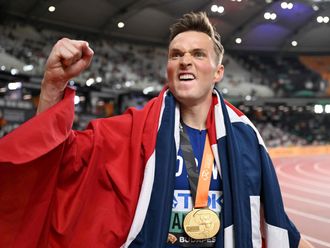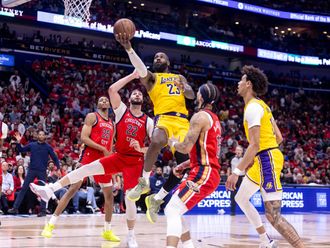LONDON: A revised bidding process. A flexible sports program. More affordable games. Creation of an Olympic television channel.
IOC President Thomas Bach’s reforms may not represent a radical revolution, but they herald the most sweeping changes in the Olympic movement since the cleanup of the Salt Lake City bid scandal in 1999.
Bach’s “Olympic Agenda 2020” is a package of 40 measures designed to modernize the Olympics, protect the brand and convince potential bid cities that hosting the games is worth the multi-billion-dollar price tag.
The IOC executive board meets Friday and Saturday in Monaco, reviewing Rio de Janeiro’s efforts in tackling delays, water pollution and uncertainty over the golf course for the 2016 Olympics. The board also will discuss South Korea’s bumpy preparations for the 2018 Winter Games in Pyeongchang, where a local funding dispute has raised concerns over the project.
The full International Olympic Committee will meet Monday and Tuesday to vote on the reform proposals.
The recommendations are all expected to win approval from the 100-plus members, giving Bach a strong endorsement and putting a firm stamp on his presidency just 16 months into office.
“We want to show that the IOC is opening up,” Bach said. “We are opening a window and we want to have fresh wind coming in.”
The IOC is trying to make the Olympics more attractive and less costly at a time when many Western European countries are turning their backs on the games.
Spooked by the reported $51 billion overall price tag associated with the 2014 Sochi Games, a half dozen cities abandoned plans or pulled out of the bidding for the 2022 Winter Olympics, leaving only Beijing and Almaty, Kazakhstan, in the race.












